Earth
Sign up for our newsletter
We summarize the week's scientific breakthroughs every Thursday.
-
 Environment
EnvironmentHow to make jet fuel from sunlight, air and water vapor
Solar kerosene could one day replace petroleum-derived jet fuel in airplanes and help stabilize greenhouse gas emissions.
By Nikk Ogasa -
 Environment
EnvironmentUnderground heat pollution could be tapped to mitigate climate change
Data from thousands of groundwater well sites in Europe reveal that more than half of the locations possess usable underground heat.
By Nikk Ogasa -
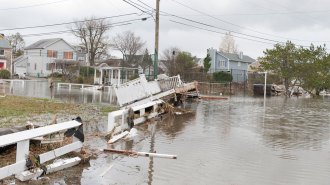 Science & Society
Science & SocietyIn the battle of human vs. water, ‘Water Always Wins’
In her new book, environmental journalist Erica Gies follows people who are looking for better solutions to extreme droughts and floods.
-
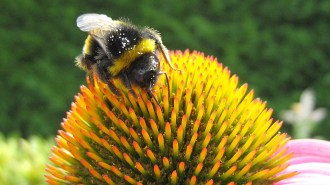 Environment
EnvironmentFlower shape and size impact bees’ chances of catching gut parasites
Bumblebees have higher chances of contracting a gut parasite from short, wide flowers than from blooms with other shapes, experiments show.
-
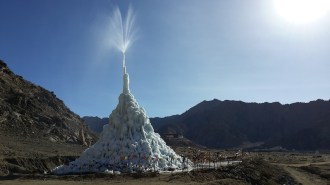 Environment
EnvironmentHow to build better ice towers for drinking water and irrigation
“Ice stupas” emerged in 2014 as a way to cope with climate change shrinking glaciers. Automation could help improve the cones’ construction.
By Nikk Ogasa -
 Earth
Earth50 years ago, a new theory of Earth’s core began solidifying
In 1972, scientists proposed that Earth’s core formed as the planet came together. Fifty years later, that theory is generally accepted, though many mysteries about the core remain.
By Nikk Ogasa -
 Paleontology
PaleontologyMegatooth sharks may have been higher on the food chain than any ocean animal ever
Some megalodons and their ancestors were the ultimate apex predators, outeating all known marine animals, researchers report.
By Asa Stahl -
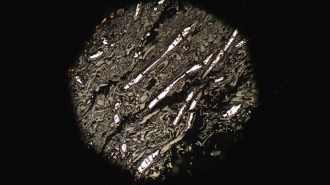 Environment
EnvironmentEarth’s oldest known wildfires raged 430 million years ago
430-million-year-old fossilized charcoal suggests atmospheric oxygen levels of at least 16 percent, the amount needed for fire to take hold and spread.
By Sid Perkins -
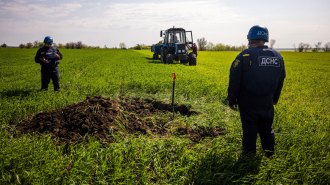 Science & Society
Science & SocietyRussia’s invasion could cause long-term harm to Ukraine’s prized soil
War will physically and chemically damage Ukraine’s prized, highly fertile chernozem soils. The impacts on agriculture could last for years.
-
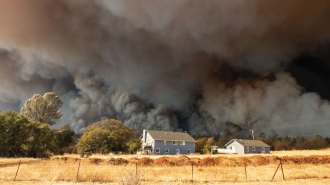 Health & Medicine
Health & MedicineWestern wildfires’ health risks extend across the country
As western wildfires become more common, hazardous smoke is sending people — especially children — to emergency rooms on the East Coast.
By Megan Sever -
 Climate
ClimateAncient penguin bones reveal unprecedented shrinkage in key Antarctic glaciers
Thwaites and Pine Island glaciers are losing ice faster than any other time in the last 5,500 years. That history is written in bones and shells.
By Douglas Fox -
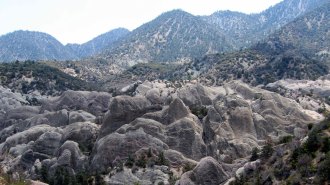 Earth
EarthAncient zircons offer insights into earthquakes of the past
Analyzing zircons’ chemical makeup can help expose intense quakes from the past and improve our understanding of the physics of today’s tremors.
By Nikk Ogasa